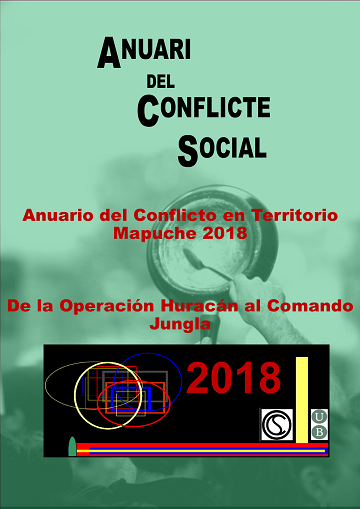CRITICAL JUNTURE OF NEGOTIATION BETWEEN THE STATE OF CHILE AND THE MAPUCHE PEOPLE-NATION
DOI:
https://doi.org/10.1344/ACS2019.9.7Keywords:
Mapuche, Chile, critical juncture, negotiation, new constitution, protestAbstract
The study responds to a current review of the Mapuche conflict, the oldest between a State and an indigenous people in Latin America, which has intensified since 1997 with an increase in indigenous empowerment in favor of self-determination, the demand for constitutional recognition and the return of land and resources for its own development policy. The critical juncture of high social and territorial conflict in Chile has polarized indigenous autonomist positions, while the State insists on a welfare and neo-productivist strategy without political negotiation or plurinational recognition in the Constitution. On its part, the Mapuche movement, which shares its rejection of the Chilean state policy, displays several groups that promote different strategies and agendas, not always complementary and synergistic ones. The results obtained show that the relations promoted by governments in terms of assistance, security and symbolic participation policies have not been effective, that the neo-productive model, based on income and monoculture as a development strategy, does not match the cosmovision of the Mapuche people. On the other hand, the different Mapuche political, community and identity groups fail to coincide with a single model of self-government, which suggests that any negotiation must be flexible in recognizing the confederal reality of the main indigenous nation in Chile.
Downloads
Published
How to Cite
Issue
Section
License
Copyright (c) 2020 Esteban Valenzuela Van Treek, Osvaldo Henríquez Opazo

This work is licensed under a Creative Commons Attribution 4.0 International License.
AUTHORS RETAIN COPYRIGHT. CREATIVE COMMONS
The authors who publish in this journal agree to the following terms:
- The authors retain the copyright and grant the journal the right of first publication of the work, which will be disseminated following the Creative Commons Attribution license.
- Authors are free to establish additional independent contractual agreements for the non-exclusive distribution of the version of the work published in the journal (such as publication in an institutional or thematic repository, their personal website or a book), provided have your initial publication in this journal recognized.
- Texts will be published under a Creative Commons Attribution License that allows others to share the work, provided they include an acknowledgement of the work’s authorship, its initial publication in this journal and the terms of the license.
- Self-archiving of pre-print and post-print versions is allowed.
Privacy statement
The email addresses and names entered in this publication will be used exclusively for the purposes declared and will not be used for any other urposes or made available to third parties.







